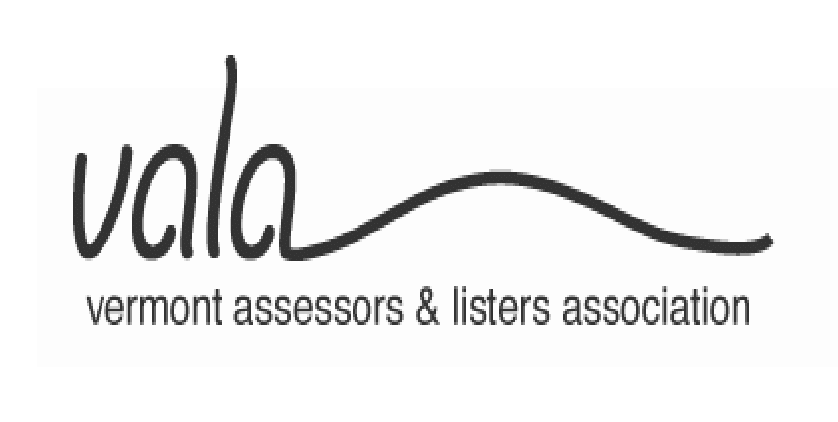Why should my town join VALA?
• Participation in the governing board by representing towns to legislature
• Influential on the development and direction to our profession
• Contact with your peers via meetings and conferences
• Professional development resources to enhance knowledge and skills
• Stay up to date on legislative changes
• Discounts on education courses
• Access to tools and information on our website
• Looks great on your resume!
What is an assessment?
The process of valuing a group of properties as of a given date, using standard methods, employing common data, and allowing for statistical testing. This is also called Ad Valorem appraising.
How are properties assessed?
Property is valued by the most appropriate method for the subject property utilizing one or a combination of the three approaches to value.
-Cost approach determines the cost of reproducing a replacement as new then adjusting for depreciation.
-Income approach determines the value based on the direct income and expenses associated with the property.
-Market or sales comparison approach determines value based on recent sales of similar property adjusted for differences in attributes.
What is fair market value?
The estimated fair market value of a property is the price that the property will bring in the market when offered for sale and purchased by another, taking into consideration all the elements of the availability of the property, its use both potential and prospective, any functional deficiencies, and all other elements such as age and condition which combine to give property a market value. Those elements shall include the effect of any State or local law or regulation affecting the use of land, including 10 V.S.A. chapter 151 or any land capability plan established in furtherance or implementation thereof, rules adopted by the State Board of Health and any local or regional zoning ordinances or development plans. In determining estimated fair market value, the sale price of the property in question is one element to consider but is not solely determinative. (32 V.S.A. § 3481(1)(A)(1)
Which statutes refer to assessing property?
Vermont State Statute Title 32: Taxation and Finance, Chapter 121 through 154.
Link here – https://legislature.vermont.gov/statutes/title/32 and some additional statutes can be found in title 16 and 24.
Is there a difference between a Lister and an Assessor?
While there is no difference between the job and responsibility of a Lister and Assessor there are some differences.
Listers are typically elected, or in some instances appointed, to fill a vacant Lister position until the next election.
Listers have the protection of being elected and secure in their jobs unless voted out during an election.
The only qualification necessary to become a Lister is to be a resident of the Municipality, no knowledge of property value is required.
Assessors are typically hired as employees or as independent contractors. Assessors are employees or contractors and can be dismissed. Assessors do not have to be residents of the Municipality. Assessors typically have advanced education in the field of property valuation.
How do I become an Assessor?
Vermont does not have any qualifications for Assessors or Listers. One just has to be hired or elected, respectively.
The difference is experience in the field and professional education. Typically, Listers once elected pursue further education in the Assessing field evolve into Assessors. Yet, they are one in the same. They do all the same duties and have all the same responsibilities.
To become an Assessor, one only needs to seek out Municipalities that are in need of Assessing officials.
The difference is experience in the field and professional education Listers as a whole are becoming more and more scarce which is opening up the field of Municipal Assessor.
How do I get a designation or certification?
The State of Vermont offers a program where you can qualify for a Vermont Property Assessor designation, see VPACP Handbook
Who holds assessment courses?
VALA! Assessment courses are also promoted and held by several in state as well as out of state entities.
The Vermont Assessors and Listers Association (VALA), Vermont League of Cities and Towns (VLCT), Property Valuation and Review division of the Vermont State Tax Department (PVR) all provide necessary valuation education opportunities.
The International Association of Assessing Officers (IAAO) and the Appraisal Institute are examples of other associations which provide valuation education.
What is a public record?
Vermont has specific rules regarding public records.
Vermont Public Records Act, 1 VSA ss 315-320 identifies public records.
Link here – https://legislature.vermont.gov/statutes/section/01/005/00316
Public records are defined as any written or recorded information which is produced or acquired in the course of public agency business.
Do I have to keep every scrap of paper or email?
No, you should have a records retention policy in your office. It should be based on what is legally necessary to maintain the records and regularly reviewed.
The Vermont State Archives & Records Administration office of Records & Information Management can assist you with guidelines for various documents.
How much do I charge for copies of assessment records?
There is a fee for the actual cost of reproduction of information such as photo copies, thumb drives, CD’s etc. and for time if it is extensive (more than 30 min.). Most towns set a rate for such information, check with your town for what the policy is.
Also, you do not have to provide free information in the format being requested if it is not already generated. The fees for production include time, materials, mailing costs and/or form of delivery. See the state archivist for more details on fee schedules.
